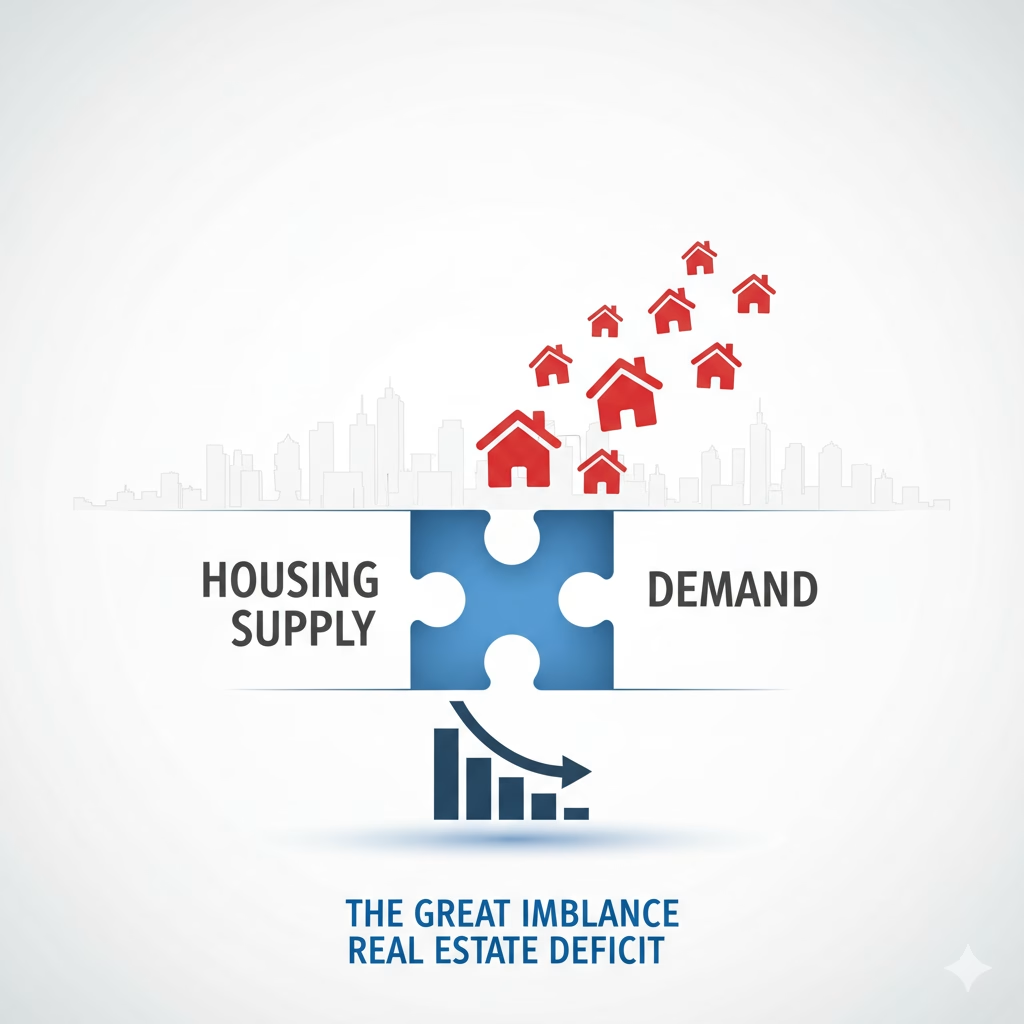Lagos Housing Deficit and Affordability Gap — A Deep Dive from an Analyst’s Perspective (2025)
By Benson Princewill – Real Estate & Market Analyst
Published on Petik Limited | Sources: The Guardian, Nairametrics, Daily Post, ThisDay, BusinessDay, Tribune Online, Northcourt Reports, Lagos State Budget 2025
Introduction: The Growing Weight of a 3.4 Million-Unit Deficit
If you’ve lived or worked in Lagos for any amount of time, you’ll know that finding decent, affordable housing here feels like chasing the wind. The city’s housing deficit is no longer just a number on a policy report — it’s a lived reality. As of 2025, Lagos is short of approximately 3.4 million housing units, according to The Guardian and Daily Post Nigeria (July 2025).
That’s a staggering 15% increase from the estimated 2.95 million-unit shortfall recorded in 2016. Despite a decade of real estate growth, smart city ambitions, and government intervention programs, Lagos’s middle class — the supposed backbone of the city’s economy — is under more pressure than ever before.
Understanding the Crisis: It’s Not Just About Quantity, But Quality
The Lagos housing crisis has two faces:
- The quantitative gap — millions of units are simply missing.
- The qualitative gap — a huge portion of what exists is substandard, unsafe, or lacking basic services like water, sanitation, and stable electricity.
According to a 2025 Tribune Online report, many of the existing “affordable” units fail to meet global livability standards. These homes may shelter people, but they don’t provide the dignity, safety, or convenience that city life demands.
Why Demand Keeps Outpacing Supply
- Population and migration pressures: Lagos continues to attract thousands of new residents each month.
- Rapid household formation: Younger adults are forming new households faster than ever.
- Urban centralization: Most of Nigeria’s high-paying jobs and key industries remain in Lagos.
These factors combine to make Lagos’s demand curve almost vertical — and supply simply can’t climb fast enough to match it.
The Supply Bottleneck: Where the Market Breaks Down
- Building materials have become prohibitively expensive due to inflation and import costs.
- Land acquisition and titling remain a nightmare, adding up to 30% to project costs (Daily Post, 2025).
- Infrastructure gaps deter investment in cheaper peripheral areas.
- Finance is scarce and expensive — mortgage penetration remains below 1%.
The result? Developers build where the profit is — the luxury market — not where the need is greatest.
The Affordability Crunch: When the Middle Class Can’t Breathe
Over 70% of Lagosians are renters, and many spend 40–70% of their monthly income on housing (ThisDay, BusinessDay, 2025). For a professional earning ₦400,000 monthly, rent alone can swallow ₦300,000 –₦380,000.
The implications are dire — reduced savings, unsafe living conditions, and rising social tension.
The Market Paradox: Luxury Booms, Affordability Busts
While millions can’t afford decent housing, Lagos’s high-end market is booming. According to the Northcourt Real Estate Report (Sept 2025), prime two-bedroom apartments in Ikoyi and Victoria Island now rent for as high as ₦38 million per year.
Developers chase returns of 15–18% annually, focusing on short-let and serviced apartments for expatriates and diaspora Nigerians — widening the inequality gap.
Government Action: Ambitious but Insufficient
The Lagos State Government has allocated ₦101.6 billion for housing and community development in 2025 — an 81.7% increase from 2024 (Nairametrics, 2025).
- Expanding public-private partnerships (PPPs)
- Scaling the Lagos Home Ownership Mortgage Scheme (Lagos HOMS)
- Delivering 14,000 new housing units by 2026
But even that won’t close a 3.4 million-unit gap — the scale of the challenge demands private sector collaboration and innovative financing.
The Human Cost: A Middle Class Under Pressure
The middle class — teachers, bankers, civil servants, and entrepreneurs — faces a three-way squeeze:
- Rising housing prices outpacing wage growth
- Exclusion from mortgage access
- Declining quality of available housing
This pressure erodes purchasing power and urban stability — a domino effect that affects the city’s entire economy.
Bridging the Gap: What Needs to Change
- De-risk land and approvals: Digitize land titles and streamline permitting.
- Expand affordable housing finance: Create blended finance funds and low-interest mortgage options.
- Promote cost-efficient building: Encourage modular and prefab housing through tax incentives.
- Invest in infrastructure-led development: Focus on Epe, Badagry, and Ikorodu for new growth.
- Empower cooperatives and rent-to-own models: Support community housing initiatives.
Conclusion: Crisis and Opportunity Collide
The Lagos housing deficit isn’t just a crisis — it’s an untapped market opportunity. With a coordinated housing framework that aligns policy, finance, and innovation, Lagos could redefine what urban living means in Africa.
